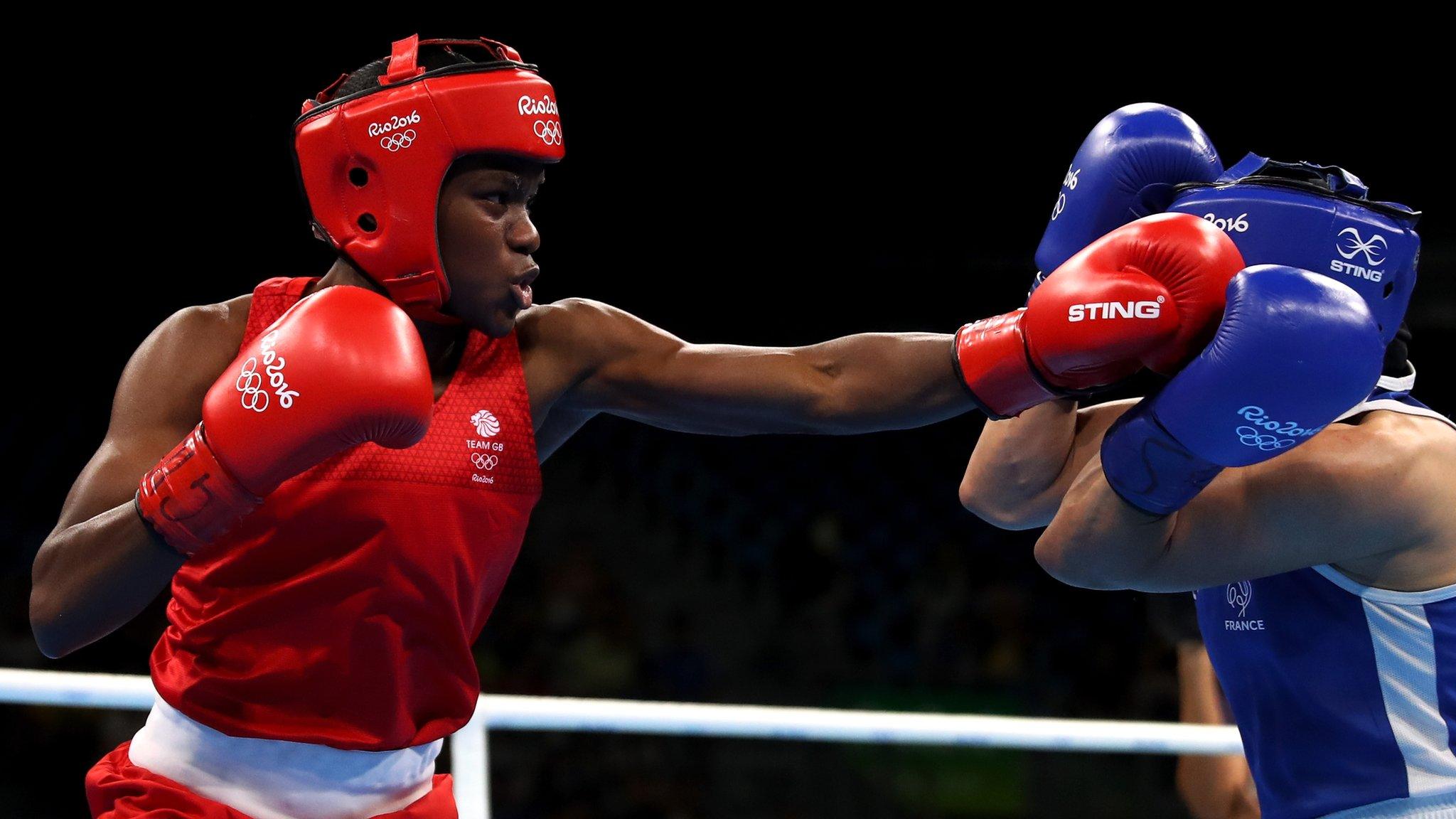Nick Blackwell: Referee 'acted immaculately' says Adam Booth
- Published
'Nobody to blame' for Blackwell injury
Boxing trainer Adam Booth says referee Victor Loughlin acted "immaculately" during Nick Blackwell and Chris Eubank Jr's British middleweight title fight.
Blackwell, 25, is in an induced coma after being stopped in the 10th round on Saturday.
Booth, who threw in the towel for David Haye in 2004 but allowed Andy Lee to continue hurt last year, also praised Blackwell's trainer Gary Lockett.
"Victor Loughlin saw it and reacted to it," said Booth.
"It was as quickly as I've seen any referee act on a swelling like that - I thought he acted immaculately in a very competitive, hard fight."
Booth says Blackwell's trainer Lockett was right to keep "steering his man through the fight".
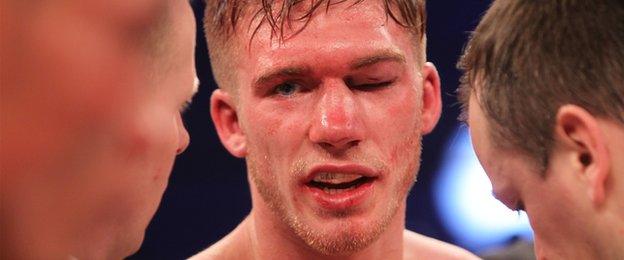
Blackwell was unable to continue because of swelling over his left eye
"There was nothing there to say 'come out of the fight'," he added. "In the 10th round Nick Blackwell started to have more success.
"All of a sudden the swelling came over his left eye. Eubank Jr caught him flush with a jab on the left eye and the swelling quadrupled very quickly.
"It was at that moment in time, even though Blackwell was having some success, Loughlin stopped the fight and took him to the doctor.
"As soon as he took him to the doctor, it became totally the doctor's call and Blackwell was in the care of the doctor from that point on."
Haye v Thompson, 2004
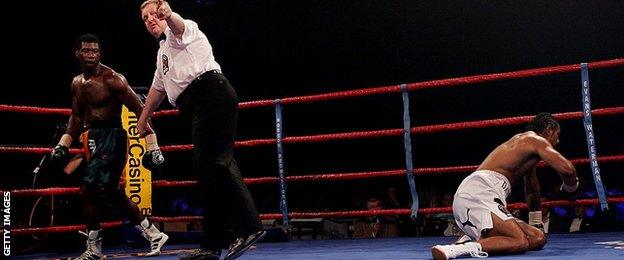
Carl Thompson knocks down David Haye at Wembley Arena in 2004
Speaking to BBC Sport's boxing correspondent Mike Costello, Booth recalled two occasions when he had to make big calls to either throw in the towel, or let a badly hurt boxer fight on.
He stopped Haye, unbeaten in 10 at the time, in the fifth-round of his IBO cruiserweight title fight at Wembley with Carl Thompson.
"The referee wasn't going to stop the fight," explained Booth. "At the end of the second round I remember thinking, having known how the training had gone, 'I don't think this fighter's got many rounds left in him'.
"I could see from David's movement that physically he wasn't going to be able to perform. In the third round I saw more evidence of the same.
"It was only then (in the fifth) he started to catch David cleanly and David didn't have anything left to defend, that was when I threw the towel in."
Haye spent the night in hospital with concussion.
"It was the right decision," added Booth. "What if he'd taken another seven rounds of punishment trying to hang in there being too brave for his own good?"
Lee v Quillin, 2015
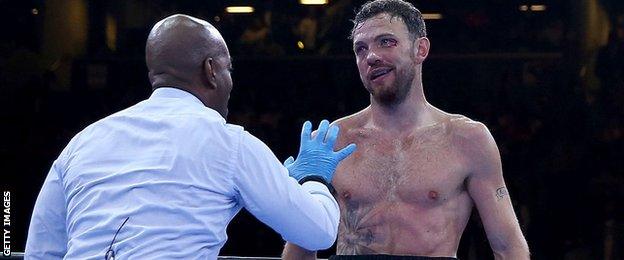
Andy Lee takes a count during his fight against Peter Quillin in 2015
Booth admits allowing Lee to continue his world title bout against Peter Quillin was a more difficult decision.
He felt the fight "was over" when he saw Lee "sliding along the ropes", but the Irish middleweight convinced his trainer to let him continue - taking a draw after 12 rounds.
"The easiest decision would've been to stop the fight, the evidence was there to stop the fight," added Booth.
"He sat down, I knelt down, and I went through the process. I was almost at the point where the fight is done, but there was no need to rush my decision.
"I got him to slow his breathing down and said a couple of things, but he didn't respond to me. In my mind I'm getting ready to call the referee over.
"My final thing was 'Andy, if you don't tell me what I need to hear, I have to stop the fight'. He looked at me, and very quickly his focus came back and he said 'I'm OK, I can get a grip of this' - he said what I needed to hear."
Booth added: "He stood up, he stood firm and in that second round he managed to get control of that fight - thankfully I made the right decision."
When is the right time to stop a fight?
Booth says the difficult decision to stop a fight cannot be based on finances, with a view to future fights, or emotion and often relies on how well a trainer knows the boxer.
"A doctor doesn't necessarily know what the fighter is capable of," he said.
"If there are no medical factors to determine the stoppage - a broken jaw, cut eye, loss of vision - then it really comes down to the coach's knowledge of the fighter.
"Is he able to protect himself? And if he is, is he able to compete?
"It is a decision you will make instinctively based on your perceptions."
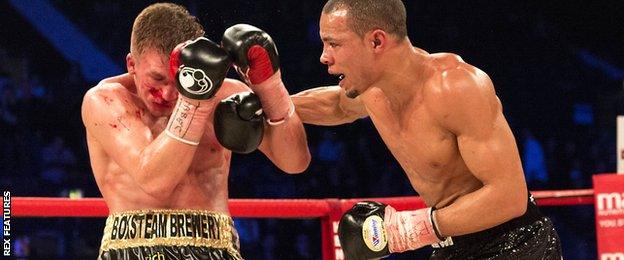
Eubank Jr took Blackwell's British middleweight title in Saturday's win
What next for boxing?
Booth insists hydration is key and thinks isotonic drinks should be allowed in the ring, like in other countries.
In British boxing, fighters can only ingest water between rounds, but Booth says "sugary" drinks would allow fighters to protect themselves for longer.
"A lot of us have exercised and at the time when we feel we are tired we might have a sugary drink," he said.
"You do feel you are able to perform a better technique for a longer period of time, because it gives you energy."
Booth feels governing bodies need to "catch up" on techniques used to help boxers make their weight, saying hydration levels could and should be tested ringside.
He suggested doping tests to stop the "what's in the bottle" argument.
"The most important time a fighter needs to be fully healthy in his hydration levels is when he is going to start fighting, at the moment of competition," explained Booth.
"What's the difference between that and a fighter having hepatitis, the flu or pneumonia when he walks into the changing room?
"If he is not physically in condition to compete and stay healthy to the best of his ability for 12, or however many rounds, then he shouldn't be allowed to fight.
"If someone isn't hydrated to a healthy level, then essentially you're talking about a fighter who's not fit and healthy to perform."
Listen to BBC Radio 5 live's boxing podcast here
- Published31 March 2016
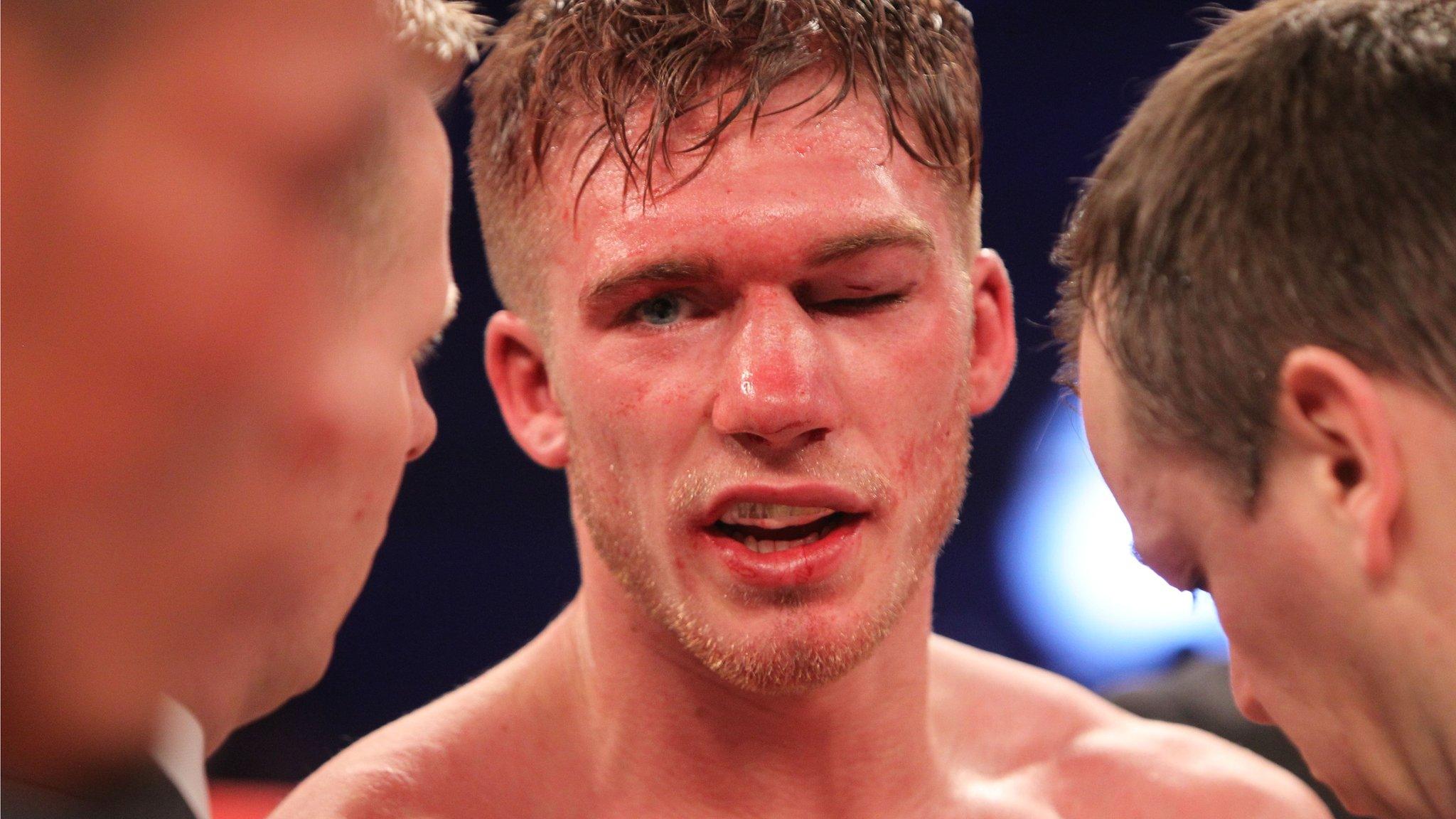
- Published31 March 2016
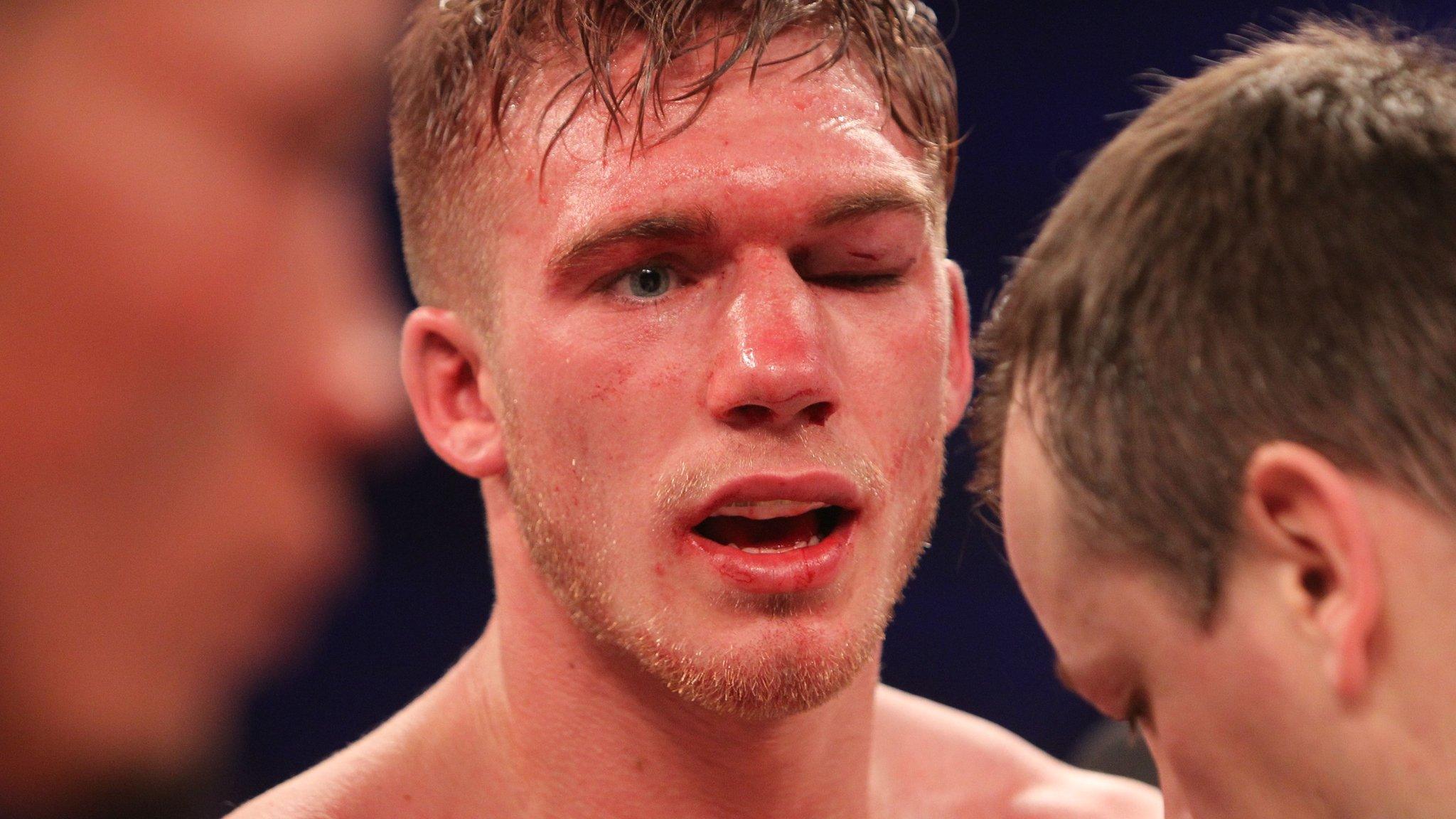
- Published30 March 2016
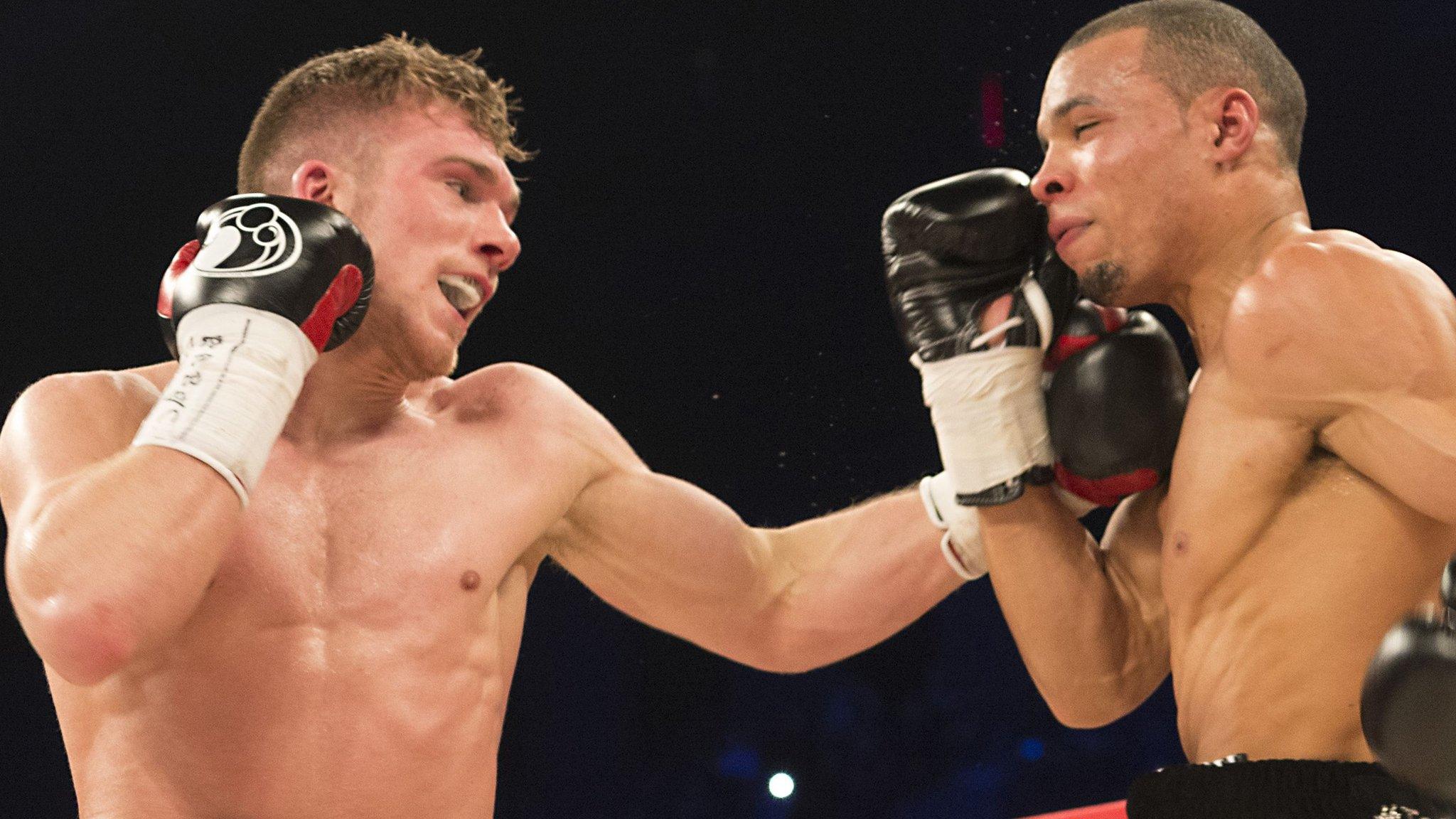
- Published29 March 2016
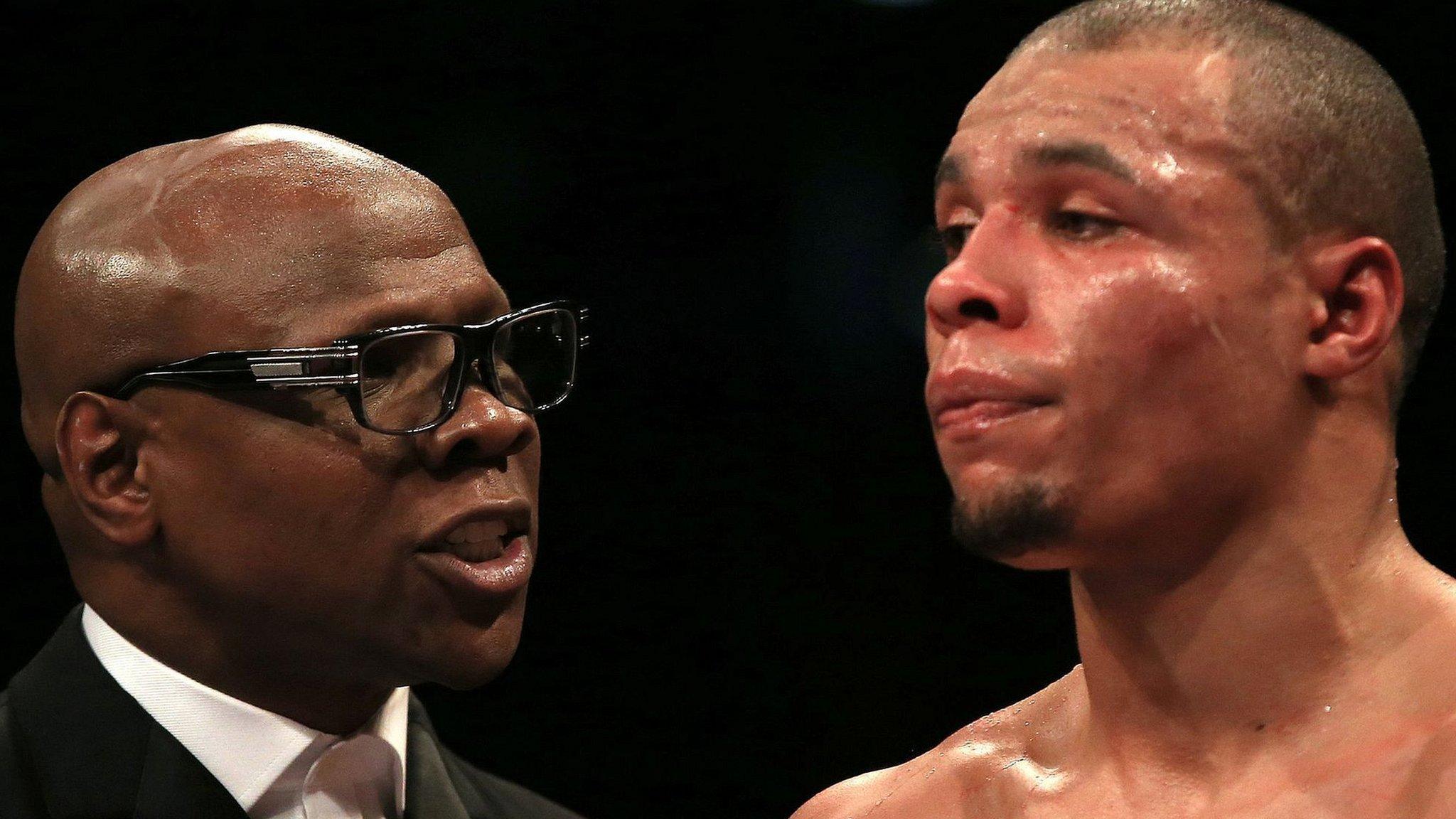
- Published27 March 2016
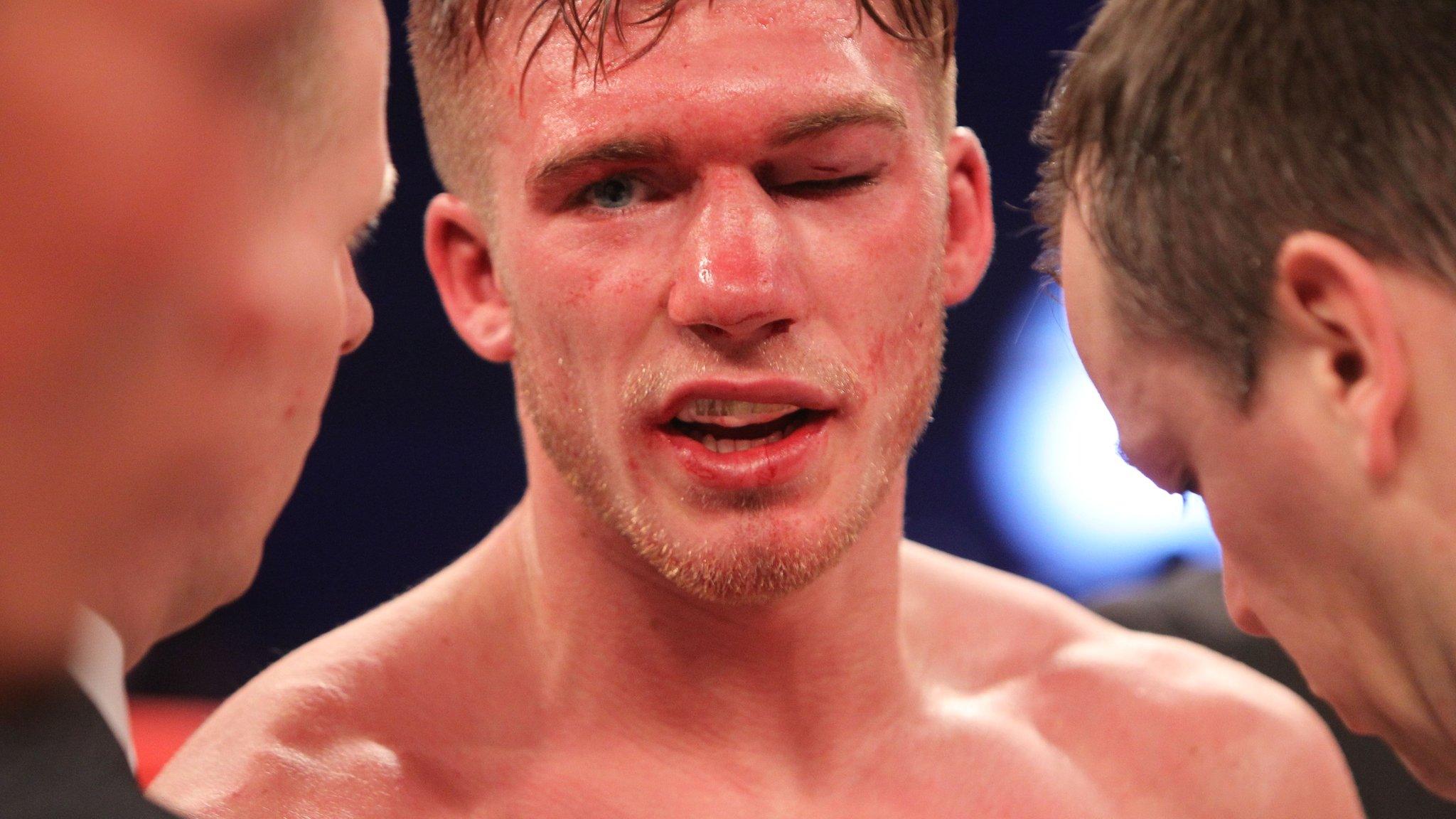
- Published11 June 2018
